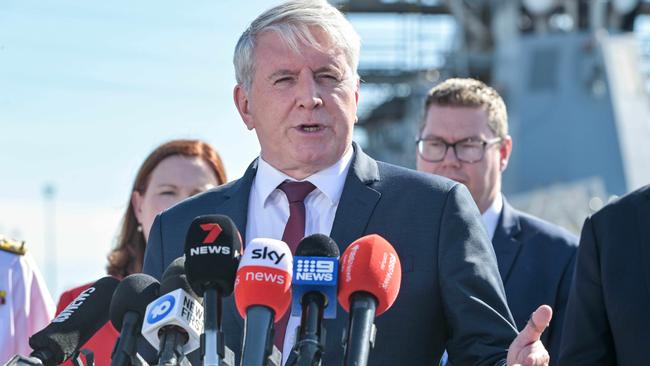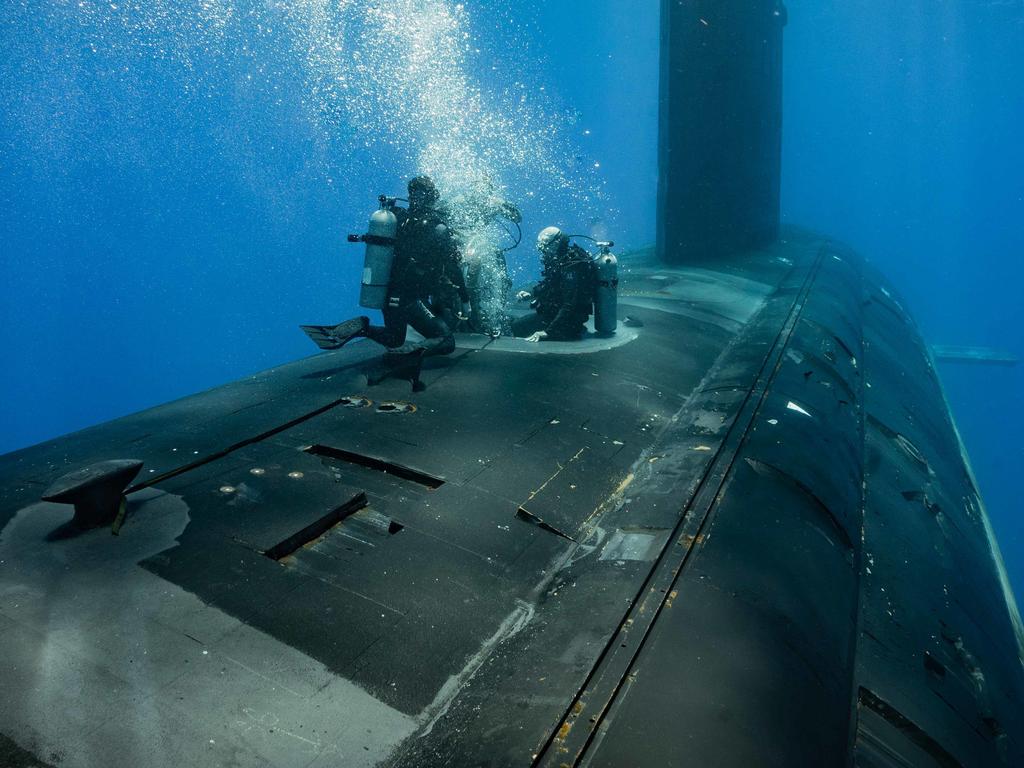Unis, TAFEs to work together deliver AUKUS skills
Australia’s tertiary education sector will be overhauled to develop the workforce needed to build nuclear submarines and meet other multi-generational challenges.

Australia’s siloed tertiary education sector will be overhauled to deliver the nation’s AUKUS workforce and meet other multi-generational challenges under a new hybrid training blueprint bringing together universities and TAFEs.
Skills and Training Minister Brendan O’Connor is working with the states and territories on the new training model, which will be baked into the next five-year national skills agreement to be finalised for the start of 2024.
The plan, which is already being embraced by South Australia’s Skills Academy, will require universities, TAFEs and industry players to work together through new “centres of excellence” to deliver tailored training.
The centres will offer university students factory-floor training and degree-level courses for trade-qualified workers, to urgently address workforce shortages in key submarine manufacturing disciplines, and other fields such as renewable energy and aged care.
The approach is similar to that adopted in Britain, where Mr O’Connor met earlier this month with senior executives from key nuclear submarine program companies Rolls Royce, BAE and Babcock.
The companies, which are set to be founding members of Australia’s nuclear submarine enterprise, will initially help train Australian workers in Britain before ramping up their Australian workforces.
Mr O’Connor said training Australia’s workers of the future would increasingly require universities and vocational education providers to work together.
“If Australia is to succeed in facing emerging national challenges such as strengthening our manufacturing and sovereign capability, reaching net zero emissions, and dealing with growing care commitments for an ageing population, then our biggest challenge is developing and attracting the skilled workforce to achieve this,” he told The Australian. “The Albanese government is looking at innovative skills pathways to develop highly valued workers for our future defence industry along with other national challenges.
“A key focus is improving collaboration and integration of the tertiary sectors – assisted by creating Centres of Excellence currently proposed under the five-year National Skills Agreement – so that VET and universities collaborate effectively to deliver the skills and knowledge our national workforce requires.”
During his British trip, Mr O’Connor was impressed by BAE’s use of apprentice-like placements for university engineering students to rapidly familiarise them with the manufacturing environment.
The British submarine industry also channels workers with specialist trades into the university environment to give them higher-level qualifications, enabling them to move into other areas of the enterprise.
South Australia’s Defence and Space Industries Minister Susan Close said the Malinauskas government was working to widen the state’s skills base to meet the needs of the defence industry.
“The successful delivery of the nuclear powered submarine program and continuation of existing naval shipbuilding requires a highly skilled workforce supported by quality training and education institutions,” Dr Close said.
“It requires additional suitably qualified and experienced personnel across operations, engineering and support functions.”
South Australia’s Skills Academy will deliver new training in partnership with the commonwealth, while the state has also received a boost to federally funded university places in science, technology, engineering and mathematics.








To join the conversation, please log in. Don't have an account? Register
Join the conversation, you are commenting as Logout